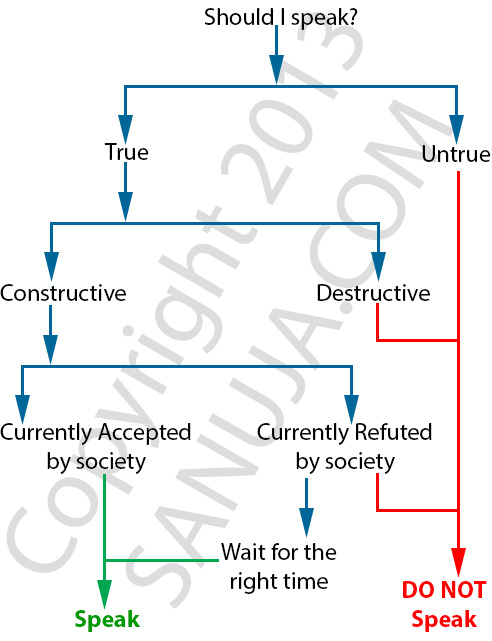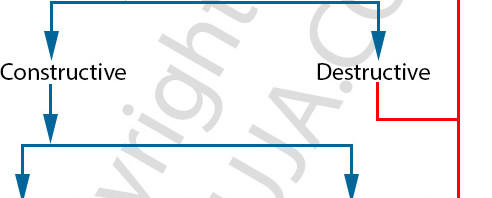If your ideas are not popular among your peers, it can be difficult to get your message across. Even if your points are valid and beneficial others, you may still have trouble convincing people around you. This occurs in almost all environments from home, school, office to in informal events.
While I am not very religious, there are some good points we can take out of almost all religions. In this particular case, an Indian philosopher (he never said he is a religious leader) well known as Buddha came up with several ways to improve how we speak and how to win an argument. The following diagram is based on his teaching which also later repeated by philosophers like Aristotle.

Explanation
True or untrue is based on evidence. If you believe what you about to say is logically justifiable, then it is true.
Constructive ideas can either be beneficial to the society or improve the current conditions. Destructive ideas either can be beneficial, but at a great cost to humanity. For example, Hitler was a great leader to depressed Germans after World War I. But his ideologies popularized through his speeches were more destructive than constructive.
Great ideas come in both evolutionary and revolutionary forms. If a new concept is not currently accepted by a large supportive audience, a revolution may not be the best option to popularize it.
